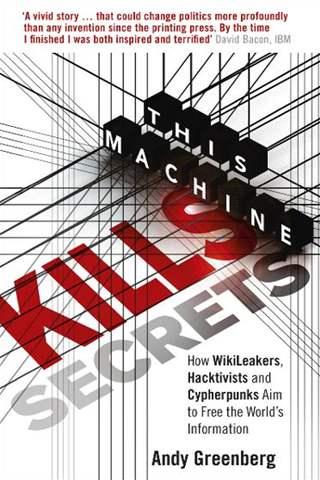Writer for Forbes Magazine, Andy Greenberg is a technology, privacy, and information security reporter and most recently the author of the book This Machine Kills Secrets. In  his excerpt from the book, The WikiLeaks Spinoff That Wasn’t: An Exclusive Excerpt from This Machine Kills Secrets, he talks about the attempted launch of OpenLeaks. At the Chaos Communications Camp hacker conference in Germany, former WikiLeaks spokesperson Daniel Domscheit-Berg launched four days of public testing of OpenLeaks. There were thousands of hackers present to actively probe the site and seek out its vulnerabilities in a crowd-sourced penetration test. However, OpenLeaks could not even get online.
his excerpt from the book, The WikiLeaks Spinoff That Wasn’t: An Exclusive Excerpt from This Machine Kills Secrets, he talks about the attempted launch of OpenLeaks. At the Chaos Communications Camp hacker conference in Germany, former WikiLeaks spokesperson Daniel Domscheit-Berg launched four days of public testing of OpenLeaks. There were thousands of hackers present to actively probe the site and seek out its vulnerabilities in a crowd-sourced penetration test. However, OpenLeaks could not even get online.
OpenLeaks was aiming to be a service provider for other parties, those who want to accept different material from the anonymous sources making the site more transparent and clear than WikiLeaks. Also, unlike WikiLeaks, OpenLeaks would not host the leaked documents, but this site would act as the middleman between those persons who want to obtain all the leak material and whistleblowers.
However both sites have the same general intent (which is the real subject of discussion): publishing submissions of secret information, news leaks, and classified media from anonymous news sources and whistleblowers. Internet has not only made privacy an issue for individuals, but even for governments. Governments have been trying to keep their intentions secret since the beginning. The number of new secrets designated as such by the U.S. government has risen 75%, from 105,163 in 1996 to 183,224 in 2009, according to the U.S. Information Security Oversight Office. And the more secrets leak, the worse it is for government credibility.
Representative, Adam Schiff (D-CA) released the following statement, posted on his site, in response to the unauthorized disclosure of sensitive State Department document:
“I deplore the potentially treasonous disclosure of classified and sensitive national security information, and urge the Department of Justice to bring any responsible party to justice. I also condemn the ongoing WikiLeaks release of a quarter million diplomatic documents, which will cause immeasurable harm to our diplomatic efforts, and worst of all, may expose our sources of information to great danger.”
However, I don’t think the government can try and address only the government’s privacy and not address everyone else’s privacy on the internet. I think that’s it is kind of an all or nothing issue. And it will be especially difficult when our society is headed toward openness and transparency; everything being online and in the public eye. It’s a radical transparency and like Andy discusses in the video below these types of leaking sites are secret-killing machines that continues to evolve beyond WikiLeaks, as a movement of “hacktivists” that aims to obliterate the world’s institutional secrecy.
[youtube]http://www.youtube.com/watch?v=CwLTSZT8zA4[/youtube]

I like how you demonstrate that it is unreasonable for the government to be outraged about privacy breaches and at the same time be dramatically increasing the number of confidential documents as well as their own information gathering activities.